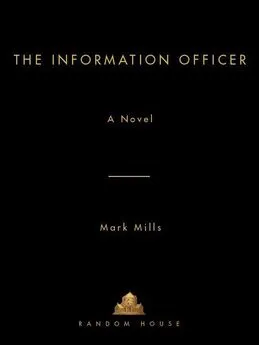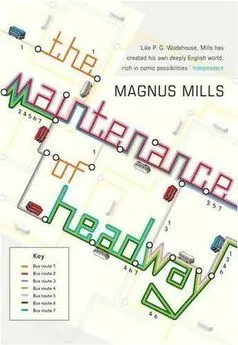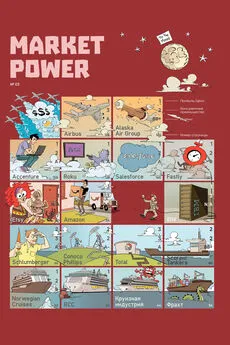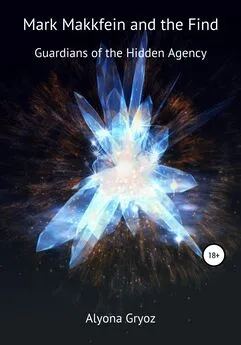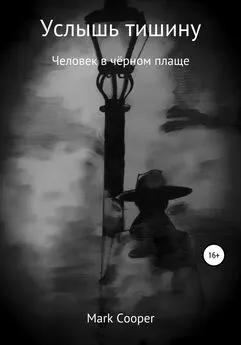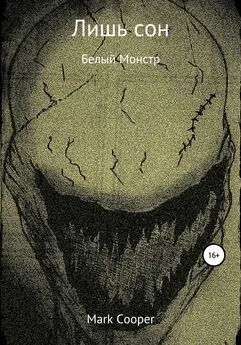Mark Mills - Amagansett
- Название:Amagansett
- Автор:
- Жанр:
- Издательство:неизвестно
- Год:неизвестен
- ISBN:нет данных
- Рейтинг:
- Избранное:Добавить в избранное
-
Отзывы:
-
Ваша оценка:
Mark Mills - Amagansett краткое содержание
Amagansett - читать онлайн бесплатно ознакомительный отрывок
Интервал:
Закладка:
All you needed was the money, and for those with less than others there were alternatives—the roads once, twice, three times removed from the waterfront avenues that fronted the ocean and skirted the shores of Georgica Pond.
On the map, Georgica Pond always reminded him of a startled marsupial settled on its haunches, its upturned snout, pointed ears, forelegs and tail formed by the larger creeks and coves which ran into the main body of water. At over a mile and a half in length from top to toe, ‘pond’ was something of a misnomer. It extended from the highway to the ocean, effectively demarcating East Hampton from Wainscott and the other communities further west.
Once open to the sea, a vicious hurricane had ripped through the area in 1938, and in a few brief hours scooped up thousands of tons of sand from the ocean bed, plugging the broad tidal gut as nonchalantly as a man might stop a bottle with a cork.
The summer colony had borne the full brunt of that freakish storm, exposed as the houses were on the high dunes and sandy bluffs that fronted the ocean. Nowhere suffered more than the Maidstone Club. Dozens of its colorful beachside cabanas were reduced to matchwood within minutes and littered across the slope leading up to the clubhouse. Paradoxically, the devastating force of the hurricane ensured the colony’s survival. After all, was this not the very reason the wealthy had come here, to stare Nature in the face, to stand mute with wonder before Her? Besides, many of them had wisely over-insured their properties and duly snatched a tidy profit from the jaws of misfortune. The pioneering spirit rekindled and reinforced, an alarming number of industrialists, financiers, publishers, actors and artists had blown in on the back of that hurricane, despite the advent of war.
Maybe the tide would turn again, as it had during the Depression. It was unlikely. Even in these uncertain times, Hollis had counted no fewer than four houses under construction on Pondview Lane while driving to the Wallace residence, the bearer of bad news.
Assuming the Medical Examiner’s initial prognosis was correct, Lillian Wallace had drowned the previous day, and as he guided the patrol car down the serpentine driveway Hollis wondered why no one had reported her missing. He hated this moment, the nervous shuffle of his feet on a foreign doorstep, the downturned gaze, the mumbled words of comfort for a total stranger—‘I’m sorry’—the unavoidable postscript, hopelessly inadequate.
He pulled to a halt a respectable distance from the main entrance, instinctively, as if the area immediately in front of the door were somehow reserved for the exclusive use of the family and their own motor cars. What had Abel said? Lillian Wallace at the wheel of a swanky roadster. There was certainly no sign of the vehicle out front.
Even with his untrained eye Hollis could tell that the house, however imposing, was an ugly affair, uncertain of its identity, overblown, with all the discreet grandeur of a rooster puffing out its chest. It was as if the architect had thrown everything in his repertoire at the building in the hope that something pleasing to his client would stick. Over one hundred feet long, the walls were stuccoed in the English style and swathed in Virginia creeper. The vine-covered pergolas suggested an Italo-American villa, but the hipped and shingled roof was too steeply pitched for the effect to be convincing. The roof was interrupted at the sides by eyelid dormers from another stylistic epoch, and in the middle by twin gables that descended to a wide porticoed entrance. This central section looked as if it had been bolted on later, almost as an afterthought. Apart from its near symmetry, about the only thing the hybrid building had going for it were the exquisite formal gardens that rolled off in all directions.
As Hollis tugged on the bell-pull he spotted an elderly gardener observing him from beside a rose arbor, squinting beneath the brim of his straw hat, water arcing from the hose in his hand. There must be someone at home or he would have approached by now. Sure enough, there was the clatter of shoes on a wooden floor from inside the house, and the front door swung open to reveal a small, trim woman dressed in a maid’s uniform. Her long dark hair, laced with strands of gray, was pulled back tightly off her face. When she spoke, her voice betrayed a faint accent.
‘Good afternoon.’ Almost immediately, her hand went to her mouth. ‘ O Dio, no…’ She had read it in his eyes.
‘Is there…I mean, are the Wallaces at home?’
‘Lillian. Where is she? Is she all right?’ Her eyes pleaded with him.
Procedure dictated that he speak to the family first, if they were present. ‘Are they here, the Wallaces?’
‘No,’ she choked.
It was Thursday. Still in the city, probably. Wouldn’t be up till the weekend.
‘What’s your name?’
‘Rosa.’
‘May I come in, Rosa?’
Four
For the third time that day Manfred Wallace inhaled the heady scent of victory. He leaned forward over the backgammon board and stared at the dice. Six and five. The gamble had paid off.
‘God damn it, Manfred.’
‘Language, Peter, I believe the Chairman’s within earshot.’
Peter Carlson arched his long neck. Sure enough, Wheaton Blake, Chairman of the club’s Card and Backgammon Committee, was seated near the bar, observing them from behind a glass of chilled white port. Peter gave a coy smile and received a guarded nod of the head in return from the Chairman: Apology accepted. This time.
‘You lucky bastard,’ muttered Peter under his breath.
Manfred didn’t believe in luck, or if he did, that it was the just reward of the skillful. Behind in the race almost from the first, he had played a faultless bar point holding game, gradually eroding White’s advantage. Still ahead, Peter had been obliged to break his midpoint first, exposing himself to a double hit.
This was the one moment Manfred’s bold stratagem had been geared towards—a pyrrhic victory or certain defeat to be determined by one roll of the dice. Ideally, he required six and five. He not only required them, he deserved them, he had earned them, they were his by right. The dice, it seemed, had agreed with him. Coming off the bar, Peter had tried valiantly to bring his two rear men home; but the game had slipped away from him along with the five hundred dollars riding on it.
‘Whiskey?’ asked Manfred.
‘Why not?’
Manfred caught the eye of a waiter polishing glasses behind the bar and the young man hurried over.
‘Two whiskeys and soda please, George.’
‘Just a needle for me,’ said Peter.
‘Of whiskey, sir?’
Peter shot him a look—soda, fool.
‘Ignore him, George, he’s sulking,’ said Manfred.
‘Ignore me, George, I’m sulking.’
George shed a helpless look and shuffled off. Peter pulled a checkbook from his pocket and began to write.
Manfred understood. It wasn’t the money, it was the losing. Not once, but twice; first at squash racquets, now at backgammon. The squash had also been a close-run thing. Evenly matched ever since their days on the varsity team at Yale, Peter’s fitness had dipped a little of late and Manfred had duly developed a hateful little dropshot. Their Thursday game was a regular fixture, and had been since the end of the war. Sometimes they played at the Yale Club down on Vanderbilt Avenue. More often than not the New York Racquet and Tennis Club was the chosen venue, as it was today. Built on a prime patch of Park Avenue, the vast building resembled a Florentine Renaissance palazzo, with rusticated arches and stone walls as thick as a prison, a prison designed to keep unsavory types out rather than in. The interiors were grand yet austere, the physical embodiment of the ideals of the gentleman sportsman, and members still stepped on to its hallowed courts clad in Brooks Brothers flannels, Oxford-cloth shirts and Indian cotton jumpers.
Peter handed over the check. ‘You’re going to have to make it up to me,’ he said.
Manfred smiled, reaching for one of Peter’s cigarettes and lighting it. ‘Jarvis Steel Company.’
‘Never heard of them.’
‘They’re based in Union, New Jersey. They make a range of tool steels, nickel bearing alloys, that kind of thing. They’ve paid dividends every year since 1903. Very sound.’
‘Very boring.’
‘A little. Till now.’
Peter leaned forward, intrigued.
‘Their metallurgical laboratory in Reading has just patented a corrosion-resistant alloy,’ Manfred went on. ‘They’re calling it Jarvis Number 10. I won’t bother you with the technical details. Let’s just say the results of the tests are, well, very impressive according to my man.’
‘You and your men,’ smiled Peter. ‘Where on earth do you find them?’
Manfred shrugged.
‘How much should I put in?’ asked Peter.
At that moment, George returned with the drinks. Manfred waited for him to leave before replying.
‘Forty thousand.’
‘It’s a lot.’
‘Not as much as the hundred you’ll make in a year, maybe two, not including dividends.’ Peter looked suitably impressed; one hundred thousand dollars was a lot of money even by his standards. It didn’t come close to the sum that Manfred’s family brokerage house had made that very morning.
It was Manfred, fresh from Yale, who had convinced the partners of Wallace, Greenwood & Company that they move into sugar when war ripped through Europe in 1939. Sugar was then selling at a paltry penny a pound. Prices had gone through the roof in the First War and there was every reason to suppose the same would happen again.
In all, Manfred and his father had spent a month in Cuba before settling on a producer just emerging from bankruptcy and controlled by the Federal National City Bank of New York. It was another six weeks before the firm formally took control of the operation. They spent heavily on processing and refining equipment, an investment which had more than paid its way by the time America entered the war in 1941. Sugar prices continued to rise, the business prospered, buoyed up by wartime demand for ethyl alcohol, readily produced from sugarcane molasses.
The foresight, the risk, the hard work had all been theirs. Eight years on, it was time to reap the rewards, a staggering seventy-six-fold return on their investment. The deal had been finalized that very morning—Manfred’s first victory of the day, indeed, his greatest to date. A few months shy of his thirtieth birthday, he was wealthier than he could ever have imagined. More importantly, though, for the grand design of his life, he had also made a lot of very influential people rich, and this was something they would never forget.
‘Excuse me, Mr Wallace.’ It was George again. ‘There’s a phone call for you.’
Manfred and Peter exchanged a look. No one ever phoned them at the club. It was a matter of principle.
‘It’s your father.’
‘My father?’
‘He says it’s important, sir.’
Manfred tamped out his cigarette and followed George to the bar. He paused for a moment before raising the phone receiver to his ear. Something had gone wrong with the deal. No. Impossible. It was signed and sealed, he’d witnessed it with his own eyes just hours before.
‘Father?’
His father’s voice, when it came, was not its usual stentorian self; no bark, no bite. ‘Manfred, I’m afraid I have some terrible news.’
Peter Carlson drained the last of his whiskey and turned in time to see Manfred replace the receiver on its cradle, groping for the surface of the counter to steady himself. His face was ashen, even the high color of his recent exertions on the squash court drained from it.
Читать дальшеИнтервал:
Закладка:

